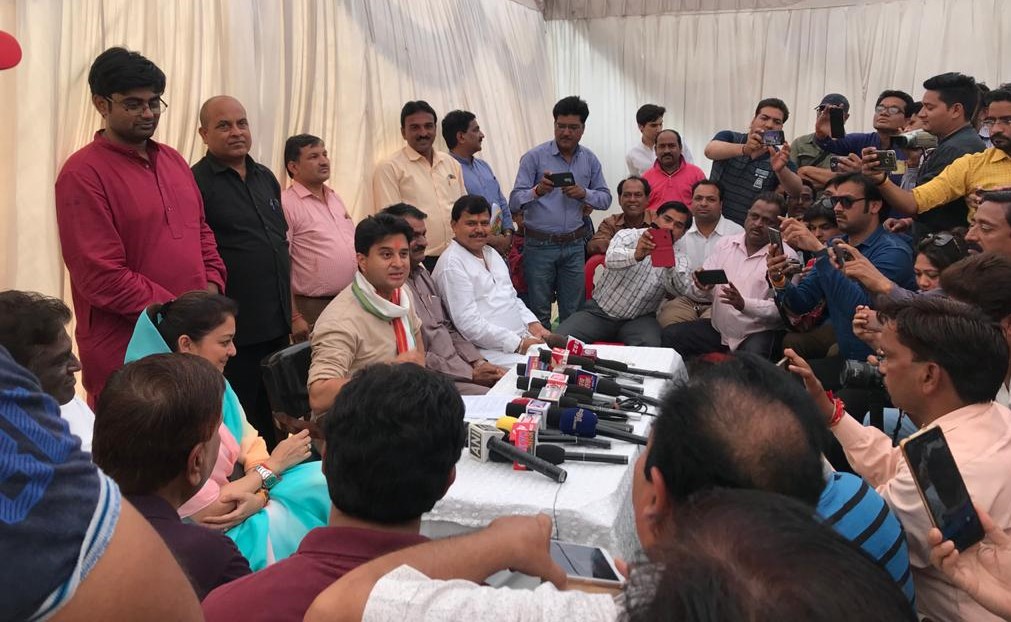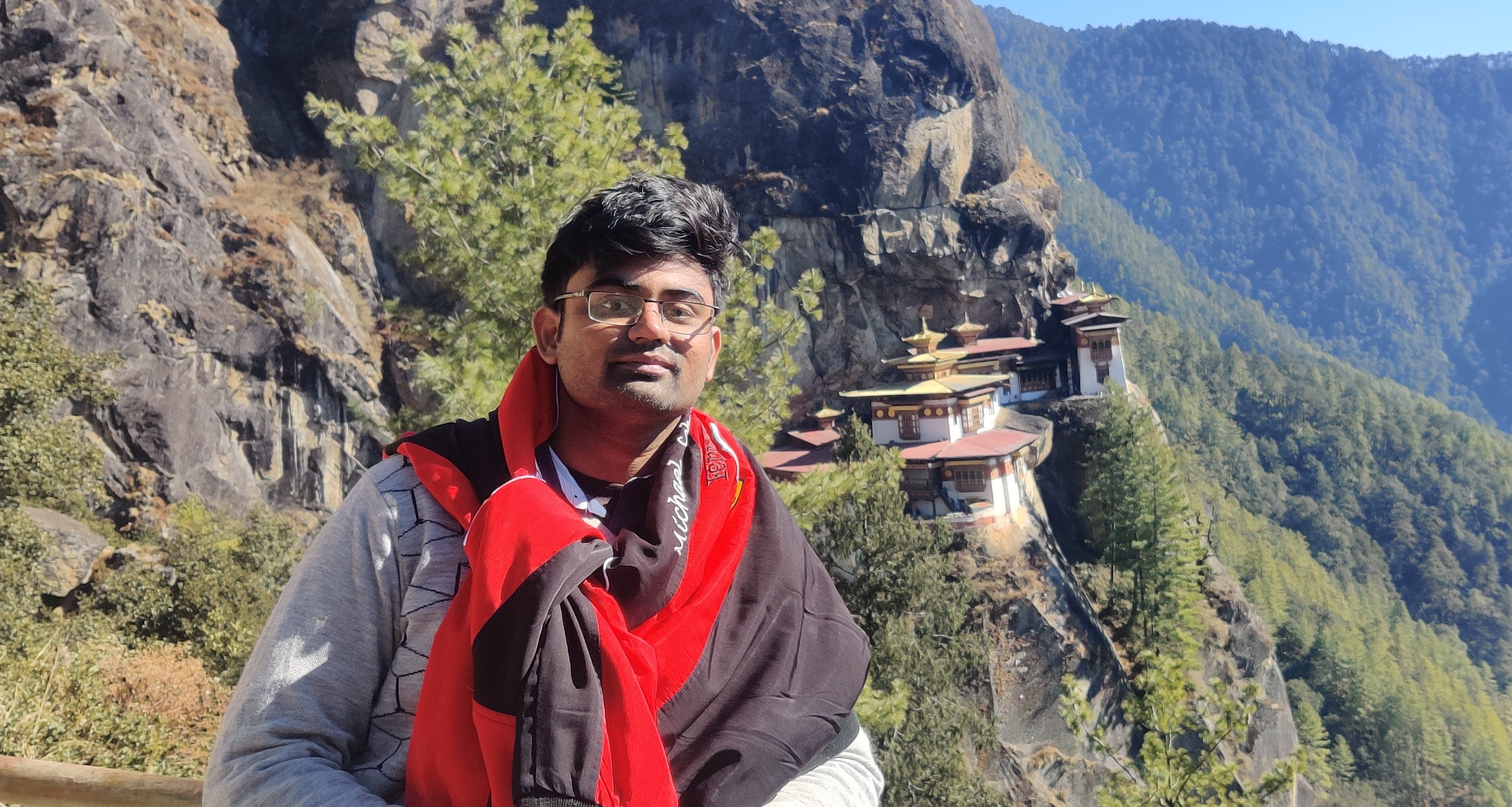Aman Saxena graduated from Law School in 2018, and served as SBA President during his time here. He went on to work at Luthra & Luthra for a few months before joining the campaign staff of Jyotiraditya Scindia as a legislative assistant and consultant. He is currently practicing as an advocate at Chattisgarh High Court. Quirk asked him to share with us some of his experiences of working as a legislative assistant.
Hi Aman, tell us a little bit about your time in Law School. What committees were you a part of, what kind of activities were you interested in, and what did you prioritise?
For me, Law School was an opportunity to try everything that it had to offer, while also learning the law. Hence, I took possible experiences as checkboxes that I must tick before my time is done. To this end, mostly to keep myself amused, I played for multiple university sports teams; didn’t debate [the ones done for First Attempt Exams (FAs) don’t count] but ended up going to World’s Debate as an adjudicator; contributed to the moot trophy cabinet; took up a teaching assistantship; fought and, in a first, won against an SDGM fine on appeal.
I firmly believe that if you do not like something that you are stuck with, you mustn’t wait for someone else to fix it. I spent a large part of my Law School life in a quest to improve the collective student experience at NLS. There are three things that any NLS student whines about the most: a) Mess Food, b) Campus Infrastructure, and c) Academic Standards (Pre-Sudhir era I am told. No?). I was in a position to work on all of them as I was the Convenor of both the Mess Committee and the Campus Development Committee. I ran for the Student Bar Association (SBA) office based on that body of work. Through my time as SBA President, I am glad to have contributed to the creation of additional common spaces on campus- by seeing through the construction of the Navalgund Park [Country Club!] and the AIR Café, and by opening up the football field to persons of all genders. With the support of some terribly passionate friends, I ensured that NLS saw some long-overdue academic reform — electives — despite strong opposition from a big chunk of the faculty. It is something that I am particularly proud of.
Your time in Law School as described by you and perceived by others might make sense in hindsight – how one thing fell in place right after the other. But a lot of the times it is just about winging different scenarios as they come to you, and doing the best you possibly can, when faced with them.
You graduated from college about two years back, what’s your career path been like in these two years?
Well, it would look like quite a whirlwind, although, if you ask me, it has come a full circle. After Law School, I started my career in the insolvency team of Luthra and Luthra with the late Mr. Sameen Vyas (RIP). Almost half a year in, a tremendous opportunity came my way as an offer to join the campaign staff of Mr. Jyotiraditya Scindia for the Madhya Pradesh Vidhan Sabha and the subsequent Lok Sabha Elections. I grabbed it with both hands and it turned out to be a life-altering experience. Now it has been more than half a year since I returned to my hometown, Bilaspur, in Chhattisgarh, to practice law.
Why did you leave your corporate law job? Was choosing an alternative career, especially one in politics, a difficult choice to make?
The choice of a career in politics wasn’t difficult at all for me. I have tremendous interest in the Indian polity. Politics is the most intellectually stimulating and challenging arena. There are no set rules on how to go about your business. When I was in Law School, I had interned with the Opposition Chief Whip of a Legislative Assembly. After Law School, I also had an offer from Prashant Kishor’s political consultancy, IPAC. I didn’t take it up because one doesn’t know what project one would be assigned, and my involvement in the elections would possibly have been remote and indirect. So I held out until an opportunity enticing enough to take the plunge came my way.
Such opportunities are extremely rare because there exists what I call a ‘Gatekeeper Syndrome’ in political spaces. This is where the insiders try to throttle the entry of outsiders as they are perceived as a threat to their proximity to the source of power. I think I was lucky that Mr. Scindia had a vibrant office of talented and secure young professionals. My friend, Bhuvanyaa Vijay, who had joined it as a LAMP fellow, held the door for me, as she wanted to discontinue.
As for leaving my monetarily lucrative job, I had become certain that a career in corporate law was not where my interests lay. There were two primary factors that helped me come to this conclusion. First, there was a significant gap between my work output and the eventual outcome, resulting in minimal job satisfaction. My team was doing perhaps the most cutting edge work in insolvency law practice at the time, representing a mammoth client for a huge NPA bid, and setting precedents for subsequent practice. One fine evening, the resolution plan that we had prepared for months got accepted and I got congratulatory messages from many people in the firm, but I really didn’t feel any joy or even a sigh of relief. It was that day that I knew for sure that I wanted out. Second, I personally enjoy the public domain and regular interaction with people from all walks, creating value for them by offering solutions. A law firm wasn’t conducive to this, for me.
What are the demands of a job in politics?
In public life, one’s life is one’s work. Your value, while working for a mass leader, comes from how much of his time you can help him save – when everyone is vying for a piece of that time. This is more so in an election year where he is responsible for his own seat as well as the campaign management of a state entrusted to him by the party.

In such a situation, you are pretty much required to be a generalist — from analysing seats for ticket allotment, designing a campaign for his own seat and overseeing the implementation on the ground while working with local political actors right down to the booth level (which I believe was the most tricky part) to writing his speeches and handling media houses/ journalists as well as social media.
Most of the times you will basically find yourself saying “Yes Sir, I’ll figure it out” and then doing whatever it takes to get the job done. To this end, I also ended up spending more than three months traversing through each and every corner of the Guna parliamentary constituency in Madhya Pradesh.
Do you think your education at Law School helped you with the job? Do you feel like your stint as the SBA President helped in anyway?
I am very grateful for my Law School education. It teaches you how to ask the right questions, how to be articulate, how to frame an argument, and a whole bunch more. That the traditional legal services industry is the only beneficiary of our learning is really quite tragic. It came in very handy for the parliamentary work. Even otherwise, it makes you more aware, sensitive, and perceptive, all of which is essential for a generalist.
With respect to my SBA experience, to get to office, you have to run a campaign. So, there was some experience, but I must admit we are talking about a gargantuan difference in scale and demography (this doesn’t fully capture it). People skills are a big plus. Moreover, NLS did not have any social media handles until my tenure when we started them. I used to personally run the Facebook page for both my own and Mathew’s term and make all the posts. That experience turned out to be useful when handling Mr. Scindia’s accounts and other PR with news agencies, both digital and print.
What was the best part of your job in politics? Could you share some interesting stints from your time?
I must tell you it’s a job full of adrenaline rush. Some of the best bits (that I can share!) include being in the AICC War Room on the counting day for legislative elections with the entire MP A-team including Mr. Scindia, Kamal Nath, Digvijaya Singh, Vivek Tankha et al, and just being glued to the TV and EC website for 14 straight hours. I kid you not, it was so tight throughout that none of us ate anything all day, until after midnight when it was certain that the INC is forming the government. A similar rush was on the voting day for Guna Lok Sabha where I was running a 50 people monitoring room for 2200 polling booths in real-time, and troubleshooting any election misdeeds that were being reported by our polling agents.
The common perception is that politics is a dirty business, which could act as a deterrent. What do you think about this?
Politics is a difficult business. The premise of it is based on pushing an incumbent out of power or retaining power despite the opposition. Some say it’s either your goons or mine. Just kidding. But I am hopeful for a generational shift in politics, for it to go from a quest to acquire power to the discharge of public service. For that to happen, you need good people to constantly engage with the political establishment.
Politics, if done right, has immense potential for good work. For instance, I was spearheading a water project in Shivpuri (Guna) which was supposed to connect a dam, with a 30 Km water pipeline, to the city suffering from acute water scarcity. I was to work and coordinate with the local governing body (Nagar Palika), the Collectorate, and various other departments of the state government. The project was incomplete for the last eleven years but within four months, we ensured that water from the dam reached the Shivpuri city. It was a lesson on what ‘political will’ can do where I witnessed how a congenial government committed to the cause can propel and give direction to the administration to fix what isn’t working. Unfortunately, after the Guna election loss, I couldn’t follow up. Further, and sadly, I recently found out that the intra-city distribution network, which was supposed to be completed sometime last year is broadly still where I left it off last year and the people of Shivpuri will still have to bear with the vagaries of supply through water tankers this summer.
What made you choose to go back to a career in law after one in politics?
I took a plunge but I always knew I wanted to do it only till the end of the Lok Sabha elections. It is the biggest democratic exercise in the world and I was fortunate that I was only 23 then. The next one would be in 2024 and I would be too far down the road in my career to break away from it. So if I had to do it, then 2019 was the perfect time.
Ever since my first year in Law School, I’ve always wanted to go back to my home state and practice law. A growing state needs good and competent lawyers and more importantly, its people to return and work for it. It is indeed difficult in the face of an entire generation having moved out of the state elsewhere. The practice of law by its very nature also offers wide-ranging opportunities to be working in an intersection with politics. So I do look forward to all the exciting opportunities ahead of me and wish to be a part of the growth story of the state.
What would be your piece of advice to someone looking to explore a career in politics?
The concept of political staff/ campaign staff hasn’t truly evolved in India unlike what you see in US teledramas. The political offices are usually run by long time aides who have been with the leader for years, if not decades, because they understand the pulse of the constituency and, most importantly, the relationship of the leader with his people and the local party organisation. There are limited avenues for young professionals or students freshly out of institutes to join a political office directly. Apart from the Gatekeeper Syndrome, it also remains an underpaid job and there isn’t any set career trajectory. Hence, it’s a risky proposition.
There are many ways of doing it. First, there are instances where young professionals permanently join the office of a high political functionary, for instance, that of Mr. Rahul Gandhi and some others that I know. It has the potential to provide a long-term career trajectory within the party organization. You could also start working for a prominent leader at your home state and see how it works at the grassroots, pick up useful insights, understand state political dynamics and take it from there. I can’t map it out generally as it is one uniquely long road which will take many turns depending upon the ever-evolving political environment and that’s perhaps the beauty of it. Second, is through the LAMP where people join an MP allotted by PRS, with the scope of work limited to the parliament. The main issue is that you have no say in the allotment. Third, is joining the research team of ministries of the Government which hire professionals on contract. Fourth, is to join a political consultancy, which is contracted by parties for different state elections and can also offer stability and a career trajectory.
All said, I recommend that if politics interests you, you should at least get a taste of how an election in India is fought and chew on a big chunk of responsibility. If so, timing is everything and you must try and get on the campaign staff of a prominent leader. Take it from me, there’s always more work to be done than there are hands on deck, and your brush with the ground realities will be of immense experiential learning.
When I had left my corporate job to join Mr. Scindia’s office, I was thoroughly apprehensive about what is in store. As I look back, I feel extremely glad that I did take the plunge.


Hi Aman. I enjoyed reading about your reasons for choosing public life, and am proud of you, your work and unparalleled contributions. There was no need to mention/thank me but since you did, I feel both gratified and also compelled to put across my version in writing, as “[Bhuvanyaa] wanted to discontinue” comes across rather too harshly to my timeline and reasons, especially considering how it wasn’t an easy decision – not just for me but for all other stakeholders involved, such as Mr. Scindia himself and PRS.
I did not want to discontinue, rather had deeply personal reasons forcing me to discontinue with the LAMP on 1 October 2018. When you joined in late Nov. 2018, I remember the deep mulling you undertook to take the plunge. It was tough, but I am glad you took the right call. As for your entry into the said office itself, I only helped secure an interview in Sept 2018 after which you came into the office and interacted with both the associates and later Mr. Scindia. At that time I was looking forward to have a colleague I know for the last five years (by then) work with me. I never knew personal circumstances would end up things in a way that we never got to work together there. It was only around two months after my exit that you joined following a final Skype call, on receiving a call-back from the office. It’s deeply gratifying to know that I could acquaint them with a true asset and I’m sure your contribution to the LS campaign made a lasting impact, results notwithstanding. Politics is after all a deeply challenging and painstakingly demanding profession.